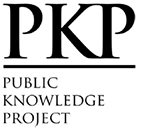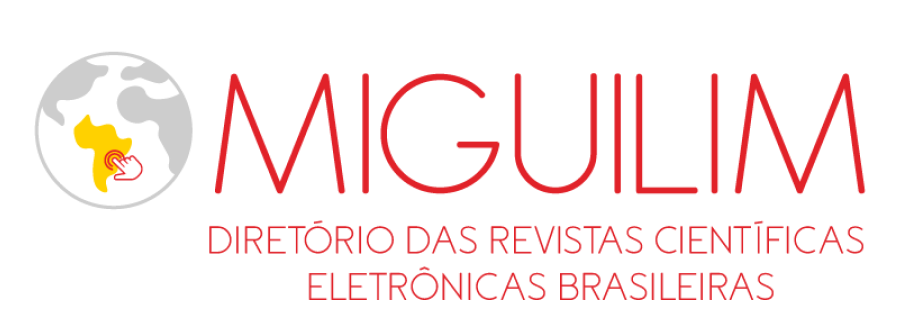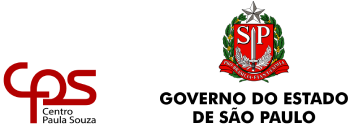Experiences in emergency remote education
challenges and (im)predictability supported by complex thinking
DOI:
https://doi.org/10.5281/zenodo.15073597Keywords:
Emergency Remote Education, Digital Technologies, Teacher TrainingAbstract
Emergency Remote Education (ERE) has been the alternative for many federal public universities, since the normative guidelines of the Ministry of Education (MEC), given the rapid infection with the new Coronavirus (COVID-19). Thus, our proposal, in this article, is to present, through a critical reflection, considerations about the application and the use of digital technologies in Emergency Remote Education (ERE) as a way to contribute to teacher education for diverse contexts, taking into account our teaching and learning experience during this period. The theoretical and methodological path took place at the interface between Theory of Complexity, as proposed by Morin (2007) and Moraes (2007) and the bias of Digital Literacy studies, according to Soares (2002, 2014) and Multiletramentos, according to Coscarelli (2007). As a result, we understand that digital technologies can serve as a springboard for teaching practice in the period of Emergency Remote Teaching (ERE), but it requires a systemic thinking with a view to complex thinking in order to account for emergent complications and unpredictabilities.
Downloads
References
BRASIL, MEC, Base Nacional Comum Curricular – BNCC, versão aprovada pelo CNE, novembro de 2017. Disponível em: http://basenacionalcomum.mec.gov.br/wpcontent/uploads/2018/02/bncc-20dez-site.pdf Acesso em 27 fev 2021.
COSCARELLI, C. V. A leitura de hipertextos: charges. In: ARAÚJO, J. C.; DIEB, M. (Orgs.). Linguagem & Educação: fios que se entrecruzam na escola. Belo Horizonte: Autêntica, 2007. p. 65-88.
FREIRE, M. M. Formação tecnológica de professores: problematizando, refletindo, buscando ... In: Soto. U. Mayrink, M. F; Gregolin, I. V. (orgs). Linguagem, educação e virtualidade: experiências e reflexões. Cultura Acadêmica, 2009, p. 13-28.
HODGES, C. et al. The difference between emergency remote teaching and online learning. EDUCAUSE Review. 27 mar. 2020. Disponível em: https://er.educause.edu/articles/2020/3/the-difference-between-emergency-remoteteaching-and-online-learning, 2020. Acesso em: 31 jan 2021.
KENSKI, Vani M. Tecnologias e ensino presencial e a distância. Campinas: Papirus, 2003.
LOPES, L. R.; ARAÚJO, J. C. A formação de professores de língua inglesa: Um olhar complexo-discursivo na contemporaneidade. Revista CBTecLE, v. 1, p. 1-10, 2020.
LOPES, L. R.; PITOMBEIRA, C. V. A tecnologia e a formação do professor de línguas no Brasil sob holofotes da Teoria da Complexidade e da análise dialógica do discurso. Hipertextus revista digital, v. 21, p. 115-125, 2019.
MORAES, M.C. A formação do educador a partir da complexidade e da transdisciplinaridade. Revista Diálogo Educacional da Universidade Católica do Paraná. v.7, n. 22, dez, 2007. p.13-38.
MORAES, M. C. Ecologia dos saberes – Complexidade, transdisciplinaridade e educação. Novos fundamentos para iluminar novas práticas educacionais. São Paulo: Antakarana/WHH - Willis Harman House, 2008.
MOREIRA, J. A.; SCHLEMMER, E. Por um novo conceito e paradigma de educação digital onlife. Revista UFG, v. 20, 2020.
NÓVOA, António. Professores imagens do futuro presente. Lisboa: Educa, 2009.
PAIVA, V. L. M. O. Autonomia e complexidade. Linguagem & Ensino, vol. 9, n.1, p. 77-127, 2006. Disponível em : Acesso em: 28 fev 2021.
PINEAU, G. A. A autoformação no decurso da vida:entre a hetero e a ecoformação. In: NÓVOA, A. FINGER, M. (orgs.). O método (auto)biográfico e a formação. Cadernos de Formação no. 1. Ministério da Saúde-Departamento de Recursos Humanos da Saúde. Lisboa, 1988.
SOARES, Magda. Novas práticas de leitura e escrita: letramento na cibercultura. Educação & Sociedade, Campinas, v. 23, n. 81, p.143-160, dez. 2002.
SOARES, Magda. Letramento: um tema em três gêneros. 2ª ed. Belo Horizonte: Autêntica, 2014.
STREET, B. Literacy in theory and practice. Cambridge: Cambridge University Press, 1984.
Published
How to Cite
Issue
Section
Copyright (c) 2021 Revista Processando o Saber

This work is licensed under a Creative Commons Attribution 4.0 International License.
Os direitos autorais dos artigos publicados pertencem à Revista Processando o Saber e seguem o padrão Creative Commons (CC BY), que permite o remixe, adaptação e criação de obras derivadas do original, mesmo para fins comerciais. As novas obras devem conter menção ao(s) autor(es) nos créditos.























